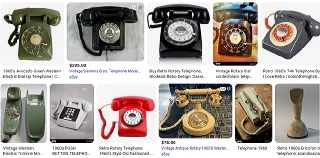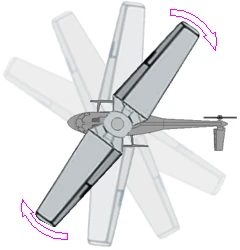7i) Examples of suggestions
26 Jan 2025 |
| Everybody is encouraged to participate in improving culture Every person, regardless of their
age or status, is encouraged to find a way to improve the city or its
culture. The process is to create a document or video to explain the
improvement or complaint, and post it in
the Suggestions
category.
Everybody gets credit for their suggestions that turn out to be
beneficial.
Only a small percentage of the population is likely to post a suggestion, but that is what we should expect, rather than consider this concept to be a failure. All of the technical and cultural progress that the human race has achieved has been the result of a small percentage of people. Since we cannot predict who will have something to contribute, we must encourage everybody to post suggestions. In order for the Suggestions category to be useful, the government cannot censor any of the suggestions. In order for people to get credit for their ideas, everybody must be intolerant plagiarism and einsteinism, and help to expose it. The Suggestions category is also an educational tool The Teentown officials are
required to have the older teenagers analyze some recent suggestions,
as if they were government officials. The students must pass judgment
on whether a suggestion should be dismissed as worthless, investigated,
or approved of.
That type of exercise will help the teenagers get into the habit of giving serious consideration to other people's ideas, and dampen our natural tendency to insult or ignore other people. It would also help the school officials identify the teenagers who are the most talented at providing intelligent analyses of other people's ideas, which would make those teenagers valuable as government officials. Every type of improvement is rewarded People can post a suggestion for anything, such as improvements in
the
swimming pools, recreational activities, material items, holiday
celebrations, wedding ceremonies, city plazas, shoelaces, clothing
items, or bicycle
paths. They
can also recommend
replacing any of the officials in the schools, government departments,
or businesses. They can also post suggestions to improve the narration
of a documentary, or a diagram in a maintenance
manual.
The following sections provide examples (the purple boxes) of what a suggestion might look like: Example 1: A possible improvement to a product This constitution requires the
engineers to design products according
to what the ministers request, rather than to titillate the public.
Since
the engineers ignore the citizens, a citizen
who wants to change a product must post a document to explains his
idea and hope that one of the ministers approve of it. For example, a
citizen who is unhappy with the delicate
and slippery cell phones could post a suggestion like this:
In that example, John Doe is
suggesting
a research project to improve
the phones. There is no right or wrong response to that type of
suggestion. It is
simply a request to investigate an issue. If a minister considers that
suggestion to be worth investigating, then
he would post a request to the Economic Division to investigate it.
If the Economic Division approves the request, then one of the ministers would arrange for some engineers to conduct experiments with phones with textured casings. If the ministers conclude that a textured casing is truly an improvement, then John Doe would get credit for his idea, and so would the ministers who approved it. That would help John Doe become one of the City Elders, and improve his chances for getting certain types of jobs. Since the economy is not a free enterprise system, the engineers would not have to convince consumers to try it. Instead, the ministers would order the factories that produce phones to add the textured casing to all of them, and they would stop the production of the independent phone casings. The ministers might also request all of the existing phones to be returned to the factory so that they can be given a textured casing. The government officials would not have to convince the public to try the phones with textured casings. The public would have no choice. The concept that the public would have no choice with telephones might seem to be creating a dystopian, dictatorial society, but whether we benefit from an authoritarian government or suffer from it depends upon who we choose to be government officials, and what sort of rules we require them to follow. If we allow pedophiles, Zionist Jews, religious fanatics, and Freudian psychologists to be government officials, and if we allow them to have secrecy and nepotism, then of course we are going to suffer.
They provided Americans with only a few different styles of telephones and colors. Many people advocated breaking up the telephone monopoly so that consumers would have more variety in phones. That monopoly was eliminated, and a lot of businesses began producing a variety of telephones, but there is no evidence that the phones today are any better than what we would have if AT&T was the only business designing phones.
I opened it up and discovered that the piece of rubber that was covering the on-off switch had developed an indentation, so I fixed the problem by using a tiny piece of packaging tape to hold a tiny piece of plastic over the indentation. Would we have such problems if AT&T had a monopoly on telephones, and was responsible for their maintenance? We have no idea what the phones today would be like if AT&T was still the only company allowed to create phones, but it is very likely that we would have higher quality phones because they would be responsible for maintaining them. In a free enterprise system, the businesses profit by selling phones, and that results in them benefiting when we break a phone, or become upset with our phone and purchase a new one. A more sensible economic system requires the engineers to be held responsible for their products. They should be responsible for the maintenance and recycling of the product. Even more important, this Constitution requires government officials to authorize only the products that improve human life. In a free enterprise system, a product is successful if consumers purchase it, but that doesn't make the product beneficial. For example, many people purchase astrology predictions, but they do not improve our lives. When engineers are under pressure to design a product according to its value to human life, they will design it very differently compared to a free enterprise system. For example, they will consider whether people benefit by having a phone that allows them to play Angry Birds, or whether that game is wasting a portion of their short life on a worthless activity, and causing computer programmers to waste their talent on the development of worthless software. The democracies and the free enterprise systems give everybody the freedom to create whatever products they please, but most people cannot make sensible decisions about how to use that freedom. The result is that there are lots of people and organizations creating automobiles, clothing items, food products, recreational items, television news reports, historical documentaries, and houses with no regard to the value of those products. This results in an enormous amount of worthless, dangerous, deceptive, and idiotic products and propaganda. There is no value in giving people the freedom to choose their own telephones, automobiles, foods, news reports, or other products unless they have the ability to make better decisions than the engineers, scientists, and government officials. If the people in influential positions are incompetent or dishonest, then it is best to let the consumers make decisions about products and culture, but if we can provide ourselves with respectable and honest leaders, we benefit by letting them design products for us. We would have the freedom to make suggestions, but they would make the final decisions. Example 2: A suggestion to improve a chore During the past few centuries,
employees have occasionally thought of a way
to accomplish their chores more
efficiently or accurately, such as by rearranging the equipment in
their shop so that they spend less time walking from one machine to
another, or by following slightly different procedures. However, in a
free enterprise system, businesses do not share their technology.
With this Constitution, all of the businesses are working for the city, so there are no secrets between them. Therefore, when an employee has an idea to accomplish his chores more accurately or efficiently, he is encouraged to post a document in the Suggestions category to explain it. If the idea turns out to be beneficial, then all businesses will be told about it and be able to implement it. They will all benefit. If the idea turns out to be a failure, then all of the businesses will be told about it so that none of their employees promotes the idea. Since people often develop similar ideas at different times, learning about previous failures can be beneficial to everybody. For an example of how a person could suggest improving a chore, an employee of a restaurant could post a document like this:
If a minister approves of that
request, they could experiment with it at one or more restaurants, and
if it turns out to be beneficial, then the ministers would arrange for
all restaurants to be provided with that service. There would be no
need to convince the restaurants to give it a try.
Example 3: A suggestion to investigate information accuracy The Mankato Clinic posted some
warnings about shiitake mushrooms, (listed here).
If
a citizen was confused by their warnings, he might post a suggestion
to investigate the accuracy of that document:
No culture yet cares about the
quality of information, so there is no requirement that people fix
their mistakes or resolve their conflicts.
In addition to conflicting remarks about the temperature to cook mushrooms, some documents claim that mushrooms and insects must be cooked to break down their chitin, which cannot be digested by mammals, but other documents claim that mammals can digest chitin, and this research document suggests that chitin triggers a beneficial immune response. By allowing people to post their complaints about information, and requiring the government officials to respond to their complaints, the public will have the ability to do force the government to investigate the confusing and conflicting information. Example 4: Ideas for research projects A person could suggest scientific
research projects, such as:
That suggestion is an example of
citizens who believe that they have discovered something important
about nutrition, cures for cancer, and other health issues, but they
cannot be sure because of the difficulty of conducting experiments with
ourself. This results in citizens giving one another contradictory and
often idiotic advice about
health and nutrition.
It is more beneficial to tell the citizens that if they believe they have discovered something about health or other issues to post a document to explain their opinion, and perhaps the ministers will authorize a research project to investigate it. In a free enterprise system, a research project that doesn't provide any financial reward to the investors would have trouble getting funding, but this constitution doesn't allow the ministers to judge a research project according to its potential profit. Rather, the projects must be judged according to their value to human life. This allows the ministers to authorize research programs that would be unprofitable in a free enterprise system, but which can improve our lives, such as a project to determine why older adults pee during the night, and whether the leaching of metals from cooking pots has an effect on our health. The suggestions for research projects are another example of why this Constitution promotes the concept of temporary government officials. There are an infinite number of possible research projects, but nobody has enough knowledge or experience to make sensible decisions about all of them. Government officials depend upon advisors to help them make decisions, but it is better to encourage people to take an active role in society by becoming temporary officials when they are knowledgeable about an issue. If a person notices a proposal for a research project that he has knowledge about, he should consider volunteering to become a temporary government official so that he can get directly involved with the decision of whether it will be useful and technically feasible. By becoming a temporary government official, he will have the authority to do something. He will not be an adviser or consultant who might be ignored by an incompetent, ignorant, or confused government officials. However, the concept of temporary government officials requires a significant change in our leadership. Specifically, in order for a government to be willing to allow talented, temporary government officials, we must have leaders who enjoy competitors. They must admire people with talent, rather than try to suppress, arrest, censor, intimidate, murder, ridicule, or blackmail them. In order to improve our world, we must set higher standards for leaders. They must be people who have the attitude of a military drill sergeant. They must be people who encourage us to develop our talents, and who have no fear of competition. They must understand the value of constructive criticism, and want competitors. They must work with us, rather than fight or dominate us. They must be willing to step aside when they notice that somebody has more talent than they do. Example 5: Daylight saving time People around the world have been
disagreeing about whether we should eliminate daylight savings time, or
make it permanent, or switch back and forth between normal and daylight
savings time. Somebody could post a suggestion with an alternative
option:
That is an example of a suggestion that we would have to experiment with to determine whether we prefer it. Furthermore, it might require experimenting with it for a few years. Example 6: New food recipes Since no society has an authority
for culture, our food related customs have been developing haphazardly
through the centuries as a result of individuals and organizations
deliberately and inadvertently creating and modifying food recipes, and
methods of serving and eating meals. This has resulted in a wide
variety of foods that have little or no health value, such as cotton
candy, and it has resulted in eating methods that are awkward or
uncomfortable, such as eating with chopsticks while sitting on our legs.
The businesses in a free enterprise system try to modify our food customs in order to increase their profit. For example, the National Gas Association participated in the creation of this video in 1950 to show how to prepare a sandwich. This particular sandwich requires using a stove, so if the video was successful in convincing people to make that type of sandwich, everybody who used natural gas in their stove would increase the profits of the gas companies. That video also has an inadvertent effect on the manner in which people eat their foods. At the beginning and end of the video, they show two boys eating lunch. One boy eats a hot dog and the other boy eats a hamburger. Each boy takes a bite, choose it a few times, and then washes it down his throat with some Coca-Cola. When I was a young child, that was regarded as a typical eating method for boys. In other words, take a bite of food, chew it a couple times, then wash it down with some liquid. However, that is the style of eating for the competitors in a food eating contest. It is not the way for us to get the most pleasure from our meals. A more sensible method is to take smaller bites, chew the food, and swallow it, rather than wash it down with some liquid. The Internet has allowed thousands of other people to get involved with manipulating food recipes by posting videos and documents. However, most of those people are doing this to bring attention to themselves, or to make money, not because they want to improve our food customs or our health. They are competing to attract our attention, so they focus on creating the most tasty and visually attractive foods, rather than the foods that are the most healthy, or the easiest to create, or the easiest to clean up afterwards. With this Constitution, the Meals Ministry has total control of meals, which includes both the recipes and the methods that we eat the food. Businesses and citizens are prohibited from promoting or modifying food customs, and all other culture. A person who wants to modify or create a food recipe must convince the Meals Ministry to approve it, rather than convince the public. They do this by posting a description of their recipe in the Suggestions category. This will have a significant effect on food recipes because instead of trying to titillate consumers with the "best tasting" recipes, they must convince the Meals Ministry that their recipe is more beneficial to society, such as being healthier, or requiring less labor or resources to produce and clean up. Although none of the homes in Kastron have kitchens, there will be social clubs that allow people to experiment with foods. One of those people might develop a recipe that he thinks would be beneficial, in which case he would post a suggestion to explain it, and hope the Meals Ministry approves of it. His suggestion might look like this:
In a free enterprise system,
businesses and citizens compete to create the most appealing
recipes.
There is not much concern about what is healthy, or what is most pleasant
for us to eat, or what is most efficient to create and clean up. That
type of competition gives us very tasty foods, but many of them have
unhealthy levels of sugar or salt.
To add to this problem, there is so little concern about the quality of information that people provide to us that businesses and citizens are allowed to claim that their food product is "healthy", even if they don't have any supporting evidence, and there is no authority to provide a clear and sensible definition for the word "healthy". The Meals Minister has total control of all of the food recipes, so when somebody wants the restaurants to provide a new type of food, they must get approval from the Meals Minister. This allows the Meals Minister to ensure that the recipes are healthy. The Knowledge Division of the World Government is responsible for our language, so they can ensure that words such as "healthy", "processed" food, and "organic" have sensible definitions. This type of culture puts people into competition to develop recipes that are both healthy and tasty. This will undoubtedly result in some foods, such as pies and cakes, that are noticeably less tasty compared to those of a free enterprise system because they will have less sugar and salt, but the children who grow up in this culture will not have any experience with the meals of a free enterprise system, so they will not consider the meals to be inferior. The Meals Ministry might approve of some unhealthy foods, such as candy bars, but they can put restrictions on who has access to them, and when, to reduce the chances that people become overweight or sickly. It will be possible for people to find a way to become overweight or sickly, but by restricting reproduction to the people who are in better health, the people who have trouble controlling their diet will be an increasingly small minority of the population.
This constitution prohibits businesses and other organizations from altering culture. The citizens are also prohibited from altering culture. The government officials are the only people who can alter culture.Therefore, none of the restaurants or food processing businesses will be able to use food products to promote refugees, homosexuality, or Zionist propaganda. This concept applies to all other items, such as clothing items, toys for children, recreational activities, and games. Specifically, people can join the social clubs to experiment with those things, and when they create something that they believe is beneficial to society, they can post a suggestion to describe it. Suggestions can be tested on the Public Discussions site The Database Minister
maintains the Public Discussions
site for the public to discuss issues in an informal manner. When a
person is considering posting a suggestion to the government officials,
he can first "test" his idea by posting it at this site, and asking for
information about it, or asking for constructive criticism of it. For
example:
By posting a question that he
knows nothing about, somebody with more technical knowledge might be
able to give him an answer. That will help him decide if his
suggestion needs to be edited, or
whether it is so idiotic that he should abandon it rather than post it
in the Suggestions
category and hurt his reputation.
For another example, a person who works in a restaurant but doesn't have any understanding of engineering or manufacturing might ask:
A mechanic who doesn't know
anything about ultrasonics might ask a question such as:
|
Unacceptable
suggestions and responses
|







